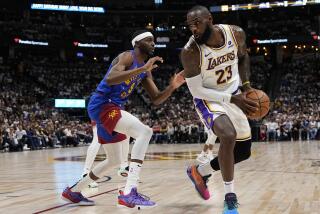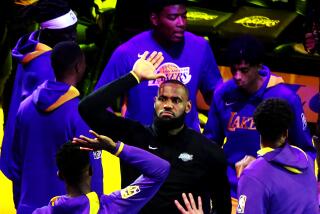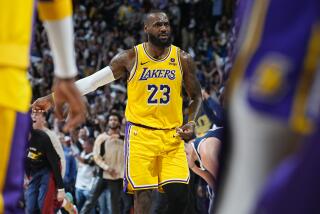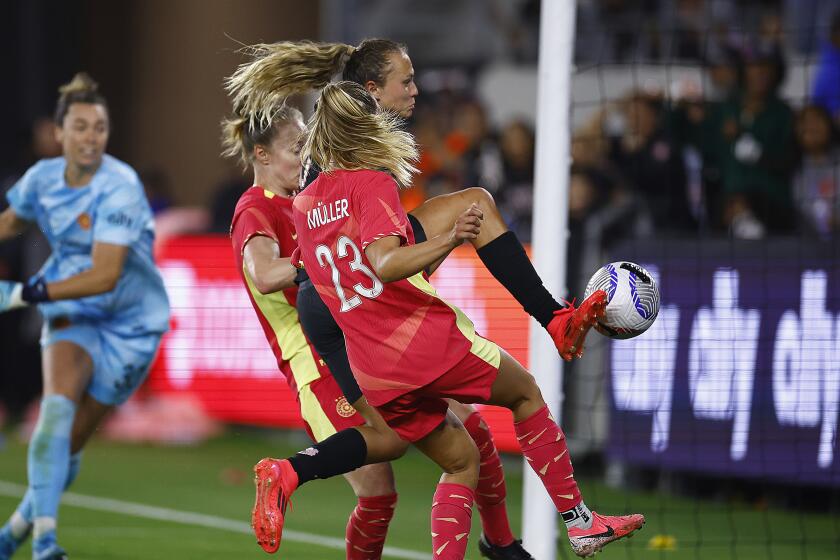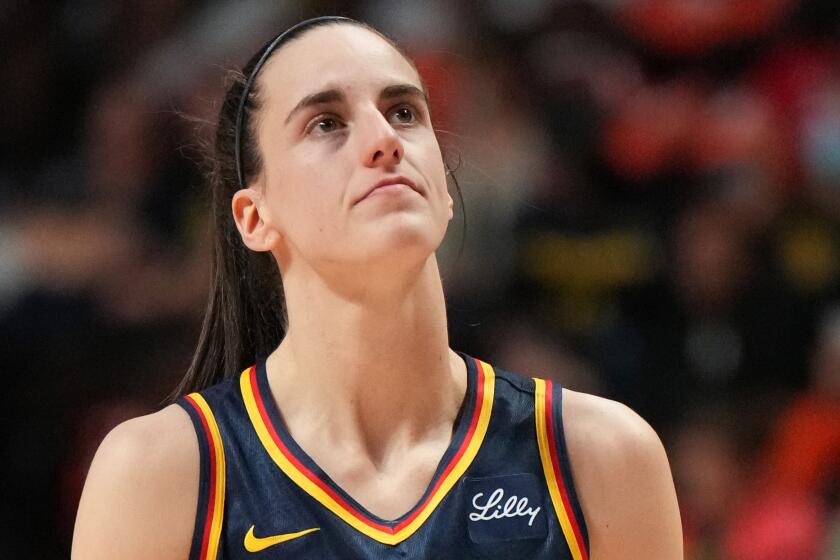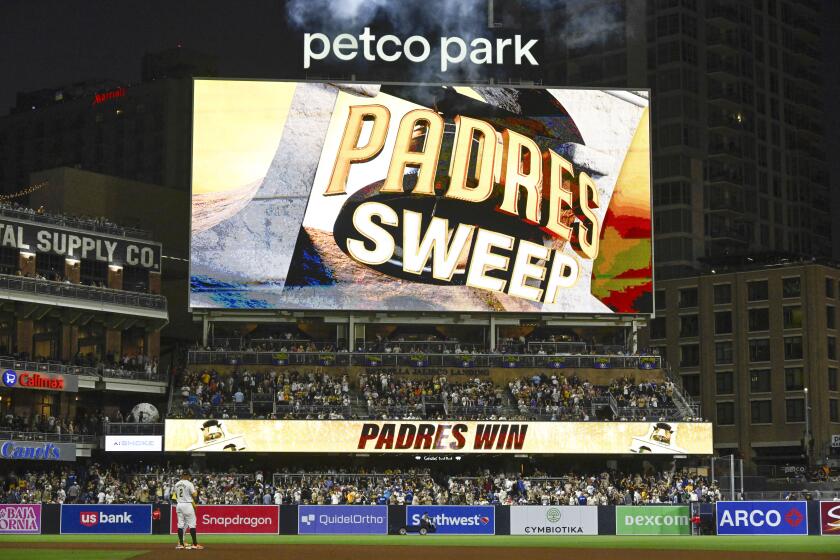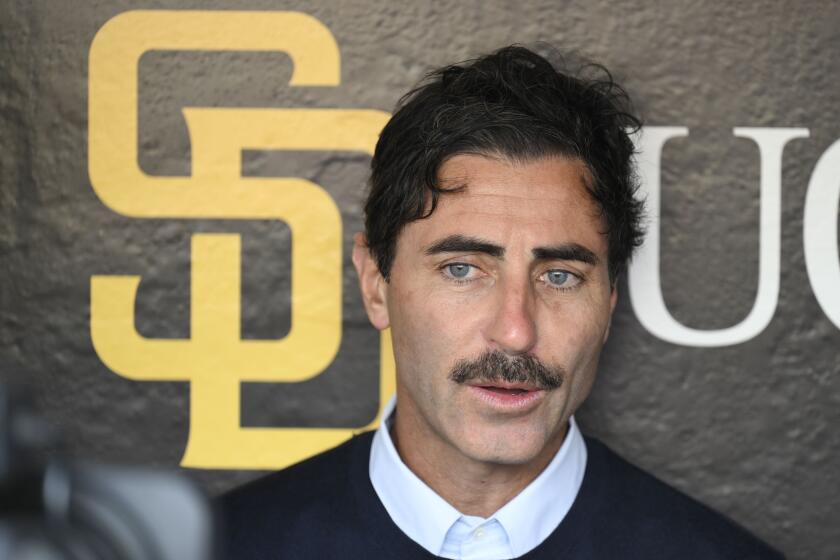NBA Q&A: Tackling the key issues in wake of the lockout’s end
The tree will be illuminated, the stockings will be hung and the Jell-O could be jiggling.
The NBA season looks like it’s back on, just in time to save the time-honored tradition of Lakers basketball on Christmas.
Barring a scheduling change, the Lakers’ opener will be against the Chicago Bulls on Dec. 25 at Staples Center after NBA players and owners tentatively agreed early Saturday to end the lockout after 149 days.
All it took was the negotiating equivalent of some frenzied last-minute shopping for the best deal, with compromises reached on sticking points such as luxury tax thresholds and salaries for mid-level free agents.
Both sides will now take the terms of the settlement back to their respective constituencies for approval. That’s expected to be a mere formality after the players drop their antitrust lawsuit against the league and re-form their union.
Times staff writer Ben Bolch examines some of the pressing questions about the end of the NBA lockout and what it means heading into an abbreviated season:
A deal has been reached, so why can’t games start, like, tomorrow?
NBA Commissioner David Stern has repeatedly said the league needed about 30 days from the end of the lockout for games to be played. That will allow time for the signing of free agents, a truncated training camp beginning Dec. 9 and a handful of exhibition games before the start of a 66-game regular season.
What were the final details that secured the deal?
According to an official close to the negotiations, the owners made several concessions to make a deal more palatable to the players. Among them:
•Players and owners will basically share a 50-50 split of basketball-related income, although a late concession allows the players a good chance to get a 51% cut during the first six years of the deal if overall revenue reaches a trigger level.
•Teams can use the full mid-level and sign-and-trade exceptions to acquire players and go $4 million over the luxury tax threshold each year without penalty.
•Teams not paying luxury taxes can offer four-year, $20-million mid-level exception contracts.
•There will be no rollback in minimum salaries or rookie pay scale, and no limit on player options.
•Rookies who outperform their first contracts can receive higher maximum salaries when they sign extensions (think Derrick Rose).
Will the All-Star game be played in Orlando as scheduled?
Yes, though the date could change.
How deep into June will the season go?
Preliminary indications are that the regular season would last until the final week of April, with the NBA Finals concluding by the end of June.
Did the owners or the players emerge as the biggest winners from the lockout’s ending?
The owners. The league claimed 22 of its 30 teams lost money last season. But with something close to a 50-50 split of basketball-related income in place, owners will receive a bigger piece of the financial pie after the players got 57% of income under the previous deal.
But players also received a handful of concessions while missing only a few paychecks.
Speaking of money, are the players getting their full salaries for this season?
No. With an 82-game season reduced by 16 games, they will make 80.5% of their normal salaries.
Who was the biggest loser in all this?
Mark Cuban. The Dallas Mavericks owner was believed to favor a system that would allow him to spend freely to keep up with the Lakers and other high-payroll teams without hemorrhaging money.
Now, with a more constricting luxury tax, he’ll have to spend less time on “Entourage” cameos and more time managing his payroll to keep the Mavericks in the running for a second consecutive title.
Who should be happier, Lakers fans or Clippers fans?
It depends on your perspective. The Clippers supposedly will have a greater chance to be competitive under a new financial framework benefiting teams that spend less on players.
Then again, they’re still the Clippers.
Who does the compressed schedule benefit?
There will be fewer games but probably more back-to-backs, meaning veteran teams such as the Lakers, Mavericks and San Antonio Spurs might have to employ a deeper rotation to keep their legs from giving out.
Teams that regularly use more than seven or eight players a game could have an edge.
Who’s your pick for the NBA Finals?
I’m going to go with the Bulls facing the Lakers. I’ll take the Lakers in six games.
More to Read
Go beyond the scoreboard
Get the latest on L.A.'s teams in the daily Sports Report newsletter.
You may occasionally receive promotional content from the Los Angeles Times.
